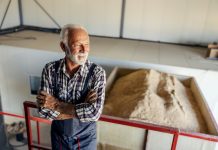
Scientists from the University of Bristol found that protection against severe COVID-19 by two doses of Pfizer-BioNTech and AstraZeneca COVID-19 vaccines remained high up to six months after second doses.
They found protection in older adults aged over 65 years, and in clinically vulnerable adults.
The research is published in The BMJ and was conducted by Dr. Elsie Horne et al.
In the study, the team analysed NHS health record data on over seven million adults.
They focused on how quickly vaccine effectiveness waned over time in adults without prior COVID infection and who received two doses of BNT162b2 (Pfizer-BioNTech) or ChAdOx1 (AstraZeneca) COVID-19 vaccines.
The researchers found vaccine effectiveness against these events was found to be at least 80 per cent for BNT162b2, and at least 75 per cent for ChAdOx1.
However, waning vaccine effectiveness against infection with SARS-CoV-2 meant that rates in vaccinated people were similar to or higher than in unvaccinated people by six months after the second dose.
The team says although protection against severe COVID-19 provided by two doses of vaccine wanes over time, the very high initial protection means that, despite waning, protection remains high six months after the second dose.
This finding was consistent across all adults, including older adults and those who are at risk of severe COVID-19.
Studying how long COVID-19 vaccines remain effective continues to be important to scheduling and targeting of booster vaccinations.
The researchers now plan to lead a follow-up study looking at vaccine effectiveness to one year post-second dose and into the era of the Omicron variant.
They are also testing the rate of waning in vulnerable clinical subgroups, such as those with chronic kidney disease and with cancer.
If you care about COVID, please read studies about why people with blood type O have lower COVID-19 risk, and new vaccine made of common dietary supplements could prevent COVID-19.
For more information about COVID, please see recent studies that vitamin D3 could help people fight against COVID-19, and results showing people over 50s may develop this disease after COVID-19.
Copyright © 2022 Knowridge Science Report. All rights reserved.



